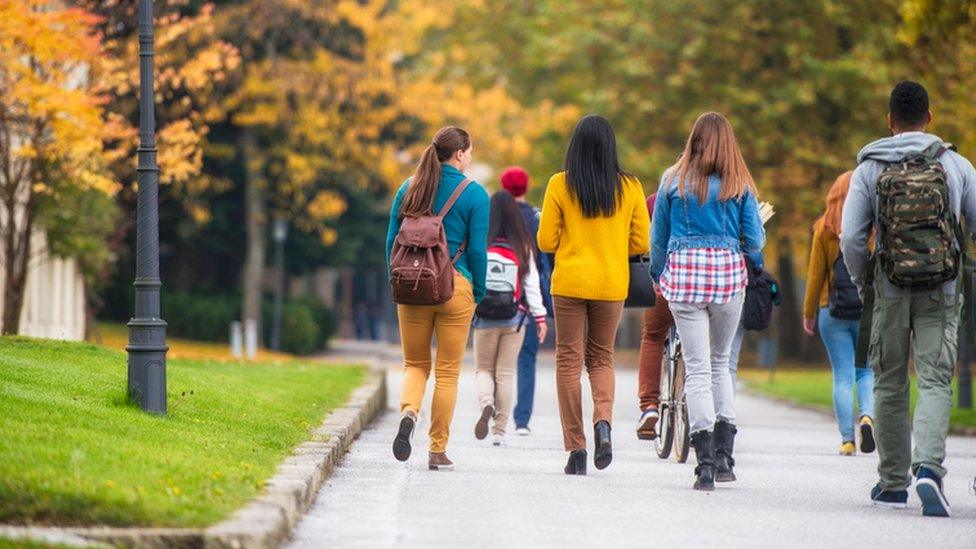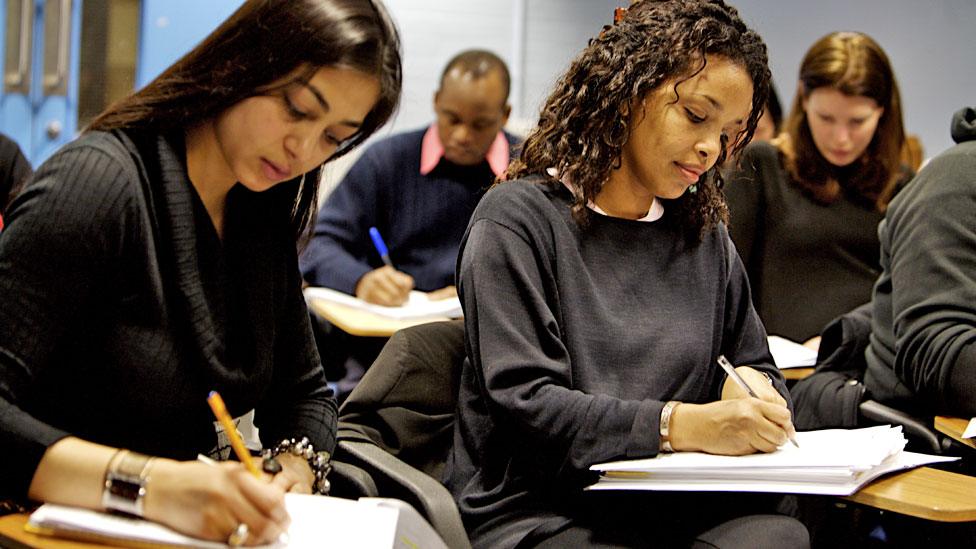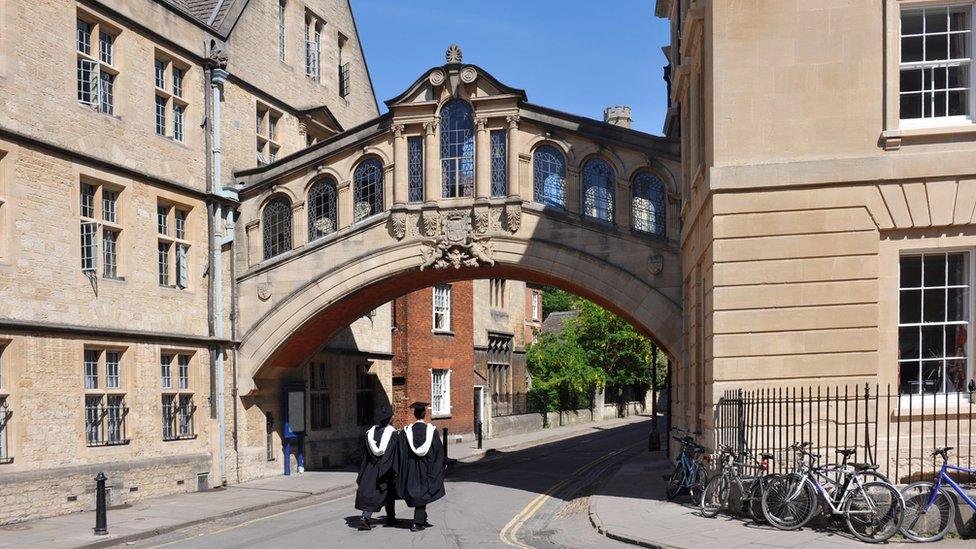Top universities to face pressure over admissions
- Published
- comments

The most competitive universities in England are to face greater scrutiny of their efforts to recruit disadvantaged students under a new draft plan.
Regulator the Office for Students plans to focus on institutions it thinks less likely to meet targets on attracting more students from poorer homes.
These are likely to be for courses with higher grade requirements, often leading to better jobs, OFS says.
The regulator wants to bring in new ways to open up opportunities for all.
The OFS intends to bring in tougher targets for the recruitment of disadvantaged students, their progress on courses and moving into work after they graduate.
Disadvantaged students are defined as:
those from the poorest backgrounds
those from areas where few people attend university
people from certain ethnic groups
youngsters who have been in care
students with disabilities.
The OFS says some universities have focused on attracting students from the 40% of areas with lowest levels of participation, rather than the bottom fifth of areas.
It is the most selective universities that have done least well in boosting recruitment from these marginalised groups.
Their higher entry requirements mean that youngsters from marginalised communities who, on average, do less well at school but may be just as bright, find it harder to win places on courses.

Under the plans, universities will continue to have to set plans (known as APPs) detailing targets and ambitions for change, how they will achieve these, and the investment needed to deliver these aims.
But the universities with the widest gaps between different groups of students in terms of recruitment, success and progression, and who are failing to close them speedily, will be more closely monitored.
They will be required to produce plans every three years, rather than every five years for the universities who are moving forward better.
'Not acceptable'
Chris Millward, OFS director for fair access and participation, said: "Everyone with the talent to succeed in higher education should have equal opportunity to do so, but that's not currently the case.
"You are more than twice as likely to go to university if you grow up in a more advantaged neighbourhood, and five times as likely to attend one of the most selective universities.
"So many talented people are being failed by a system that should be a gateway to a rewarding life. This is simply not acceptable."
Universities will also be required to:
work in disadvantaged neighbourhoods to improve pupils' results and encourage them to think about going on to higher education
reduce the drop-out rate of students from disadvantaged backgrounds
tackle differences in achievements between students of different ethnicities, backgrounds and between those with disabilities and others.
The consultation, external on the proposals closes in October and the OFS hopes to draw up firm plans by early 2019.
Universities would be expected to produce their own APPs ahead of the academic year starting in October 2020.
Dr Tim Bradshaw, chief executive of the Russell Group of universities, said it had been working with the OFS to help develop proposals which can have the biggest impact.
He said the extra time between drawing up new APPs would give the universities time to develop their work with schools, and more widely in the community, to widen the pool of disadvantaged pupils with good grades.
"There is a great deal of activity to improve access taking place across the sector but what we need now is a clear overview of which interventions make the biggest difference.
"We need to be clearer on what works, and what doesn't, if we are to shift the dial."
- Published19 June 2018

- Published6 June 2018
